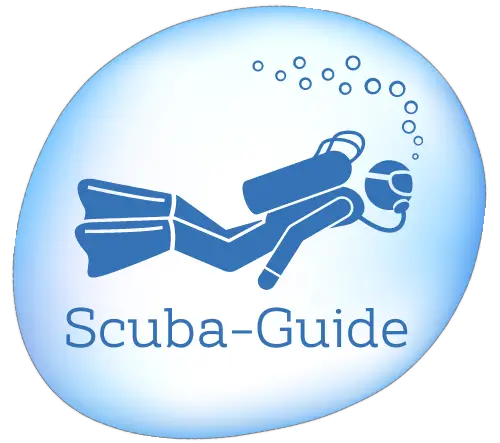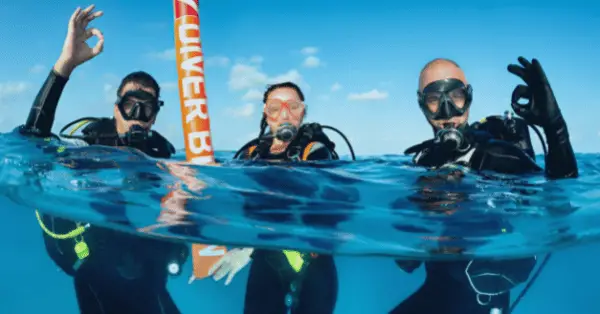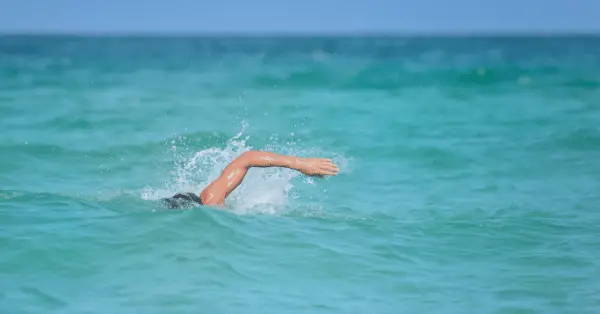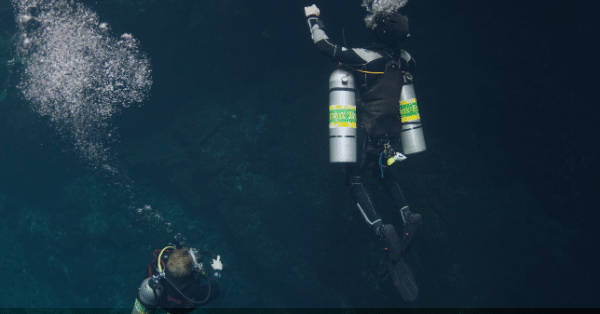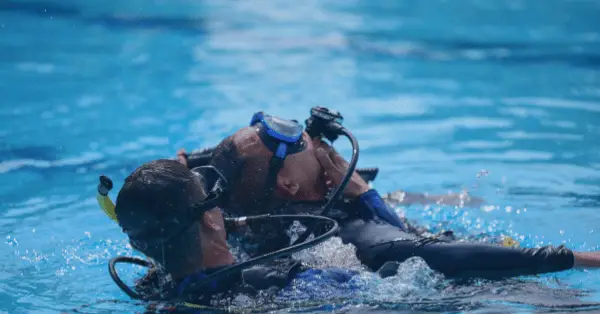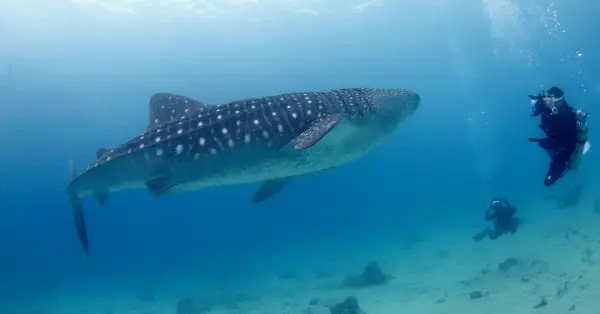Why You Should NEVER Hold Your Breath While Scuba Diving
One of the most important rules of scuba diving is to never hold your breath.
In this blog post, we will discuss why it is so important not to hold your breath while scuba diving, and why it’s different for snorkeling and free diving.
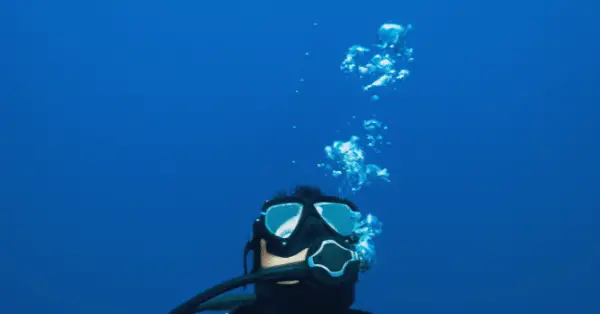
Why scuba divers should never hold their breath
Compared to snorkeling and free diving, scuba diving is a totally distinct experience. Typically, when someone snorkels or free dives by taking a deep breath at the surface, their air will compress as they go deeper underwater due to the pressure of the surrounding water; that same air expands back up once they ascend closer towards the surface again.
In contrast, a scuba diver breathes air at the same atmospheric pressure as the water around them. Essentially, they breathe compressed air. If they ascend to shallower depths, the air in their lungs will expand due to the reduced pressure of their environment.
Think about pushing an air-filled balloon underwater. The deeper you push it, the more the air decompresses and the volume of the balloon shrinks. If you take the same balloon back to the surface, it will be back at its original size as the air expands back to the surface pressure level.
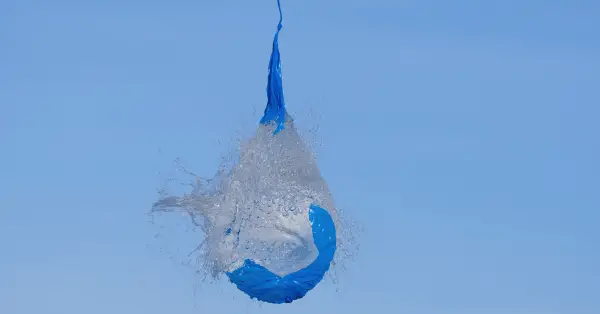
On the other hand, if you fill the balloon with air at a certain depth and ascend with it to the surface, the air will expand and burst the balloon. The same is true for your lungs.
A diver who holds her breath underwater prevents the air in her lungs from exiting. If she ascends, the trapped air will expand but have no means of escape, causing potentially dangerous consequences.
Another example is your inflated BCD and scuba tank. Usually, when arriving at your dive depth, you may adjust the air in your BCD for optimal buoyancy. If left untouched, you may notice that the air in your BCD inflates while ascending toward the end of your recreational dive. This will give you an uplift, and you may let the air out of your BCD to countersteer the effect. The ascending force will be supported with the uplift or your now emptier scuba tank as well.
Holding your breath while ascending can lead to an over-pressurization lung-injury pulmonary barotrauma.
What is Pulmonary Barotrauma?
A lung over-pressurization injury, known as pulmonary barotrauma, is extremely hazardous for divers who ascend while holding their breath. It’s one of the main scuba diving dangers. Not only can this pressure lead to the accumulation of air in a diver’s chest cavity or bloodstream at both microscopic and macroscopic levels, but it also has potentially life-threatening consequences if left untreated.
Even though lungs appear flexible and resilient, they are actually comprised of delicate alveoli at their minutest level. These tiny sacs of tissue have extremely thin walls that easily expand and contract with each breath. These walls are prone to rupturing even with minor depth adjustments if the enclosed air is unable to escape. The slightest pressure can cause a dramatic expansion of the wall’s internal atmosphere, leading to its destruction.
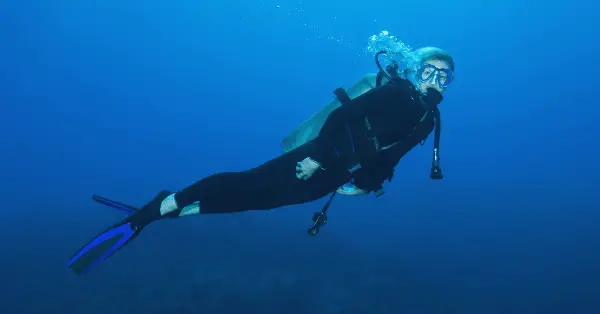
How to breathe while scuba diving
When scuba diving, never hold your breath and follow the rule of constant breathing through your regulator. When ascending or descending, breathe slowly and steadily to equalize the pressure in your lungs with that of your environment.
Navigating up and down is also regulated by the scuba diver’s breathing. Inhaling will help you to move up; exhaling to move down. With great buoyancy, you can navigate every dive site with your breathing technique.
Technically, you can hold your breath
Technically, scuba divers can hold their breath if they stay at the same pressure level at the same depth. However, this is just a technical point we want to get out. For safety reasons, never practice this and keep breathing while scuba diving. Especially, inexperienced scuba divers may not notice if they descend or ascend slightly. You can also catch an unexpected underwater current that pushes you up or down.
That’s why you learn the golden rule of scuba diving in your open water certification program: Don’t hold your breath!
Conclusion
Holding your breath while scuba diving is a dangerous practice and can result in an over-pressurization lung-injury pulmonary barotrauma. When scuba diving, always follow the rule of constant breathing through your regulator to equalize the pressure in your lungs with that of your environment.
P.S. Think about all the fun things you can do with air bubbles underwater: blow a bubble ring
